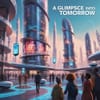Imagine having a tool that allows you to peek into your own future. Researchers at MIT are harnessing the power of artificial intelligence to create simulations that give individuals a fascinating look at potential life paths. This innovative technology could help people make more informed choices about their health, careers, and personal lives.
At its core, this AI-driven simulation utilizes complex algorithms to analyze a variety of factors—from personal habits to environmental influences. By inputting data about your current lifestyle, the AI can generate visualizations of possible outcomes, illustrating how different choices might shape your future. This approach not only provides insights but also encourages users to reflect on their goals and aspirations.
For instance, if someone inputs information about their diet and exercise routine, the AI can project potential health outcomes years down the line. It can highlight the impact of consistent habits versus short-term decisions, allowing users to see the long-term benefits of healthier choices. This type of foresight can be incredibly motivating, serving as a reminder that small changes today can lead to significant transformations tomorrow.
Beyond personal health, these simulations can extend to career paths as well. By analyzing market trends and individual skills, the AI can suggest potential career trajectories, helping users navigate their professional journeys with greater clarity. This guidance can be especially valuable in an ever-changing job market, where adaptability is key.
However, the technology is not without its challenges. Ethical considerations arise when using personal data, and it’s essential to ensure that users’ privacy is protected. Moreover, the accuracy of the simulations depends heavily on the data used and the assumptions made by the AI. Researchers are committed to refining these tools to enhance their reliability and usefulness.
Looking ahead, the potential applications of AI simulations are vast. As this technology evolves, it could play a crucial role in education, mental health, and beyond, helping individuals explore their options and envision different possibilities for their lives.


